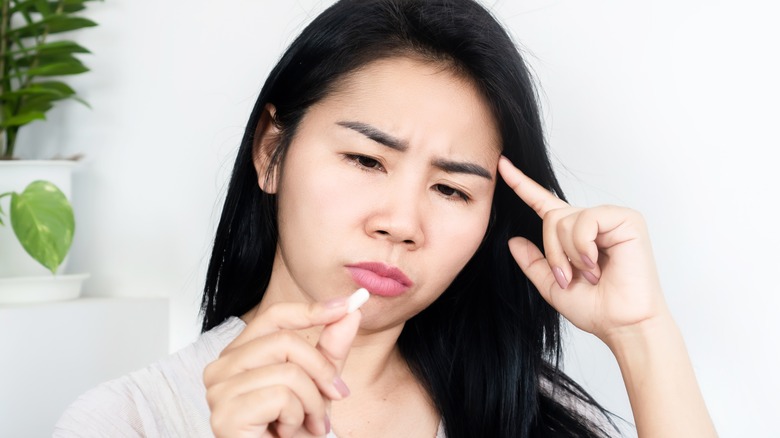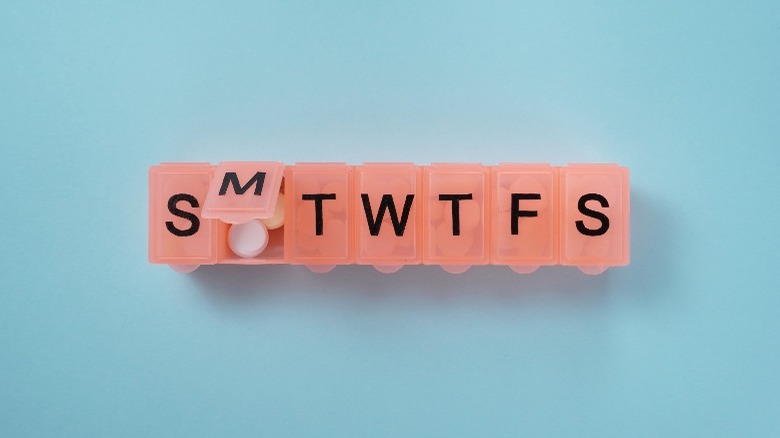What Happens To Your Body When You Skip A Dose Of Your Antidepressant?
Antidepressants can bring light to dark days for many people struggling with depression. According to NHS Inform, they're the most effective and quickest treatment available for severe depression symptoms. Antidepressants can also offer relief for other conditions, including obsessive-compulsive disorder, anxiety disorders, and chronic pain.
There are several different types of antidepressants available, each affecting the body in slightly different ways (per Mayo Clinic). As NHS notes, however, most come in tablet form and are taken daily, with dosages generally ranging from one to three tablets.
For antidepressants to work properly, it's crucial to not miss a dose. "It's important to take your medicine at the same time every day. Either in the morning when you get up or at night when you go to bed is a good idea," psychiatrist Dr. Wayne Anable told Premier Health. Keeping a routine helps you remember to take your medication and ensures that it's always in your system.
Still, accidents happen, and sometimes a dose can get overlooked. Here's what to expect if you forget to take your antidepressant.
Missing a dose of your antidepressant is more serious than you think
Occasionally skipping your antidepressant medication might not seem like a big deal, but it can be enough to disrupt the chemicals in your brain, causing withdrawal-like symptoms (per WebMD). These symptoms can take a toll on your mental health, even if you miss just one dose, and you may notice mood changes, anxiety, and trouble sleeping. Other symptoms can be physical, such as headaches, nausea, tiredness, and flu-like body aches and chills (per Mayo Clinic).
The experts at Harvard Health Publishing explain that experiencing these symptoms doesn't mean that your body is addicted to antidepressants. Instead, your system is only responding to a swift change in the level of neurotransmitters in the body. Antidepressants affect these neurotransmitters, and skipping a dose requires neurons to adapt quickly to fluctuations. This can trigger symptoms that, while typically not dangerous, can be uncomfortable. According to the U.K. organization Mind, symptoms can vary depending on the type of antidepressant, and not everyone will experience them if they skip or stop taking their medication.
What to do if you missed a dose
If you forgot to take a dose of your antidepressant, first, don't beat yourself up. According to a 2002 article published in Australian Prescriber, over 80% of people forget to take their medication at least occasionally. Familydoctor.org suggests recovering by taking your missed dose as soon as you remember. If you're out of medicine or lost your prescription, contact your doctor as soon as possible for a refill.
If you don't realize that you've missed a dose until it's time to take the next, don't double dose, warns NHS. Simply skip the one you forgot and resume taking your regular dosage at your normal time.
Missing one dose won't derail your treatment entirely. However, repeatedly skipping doses might. Psychiatrist Dr. Michael Banov explained to Everyday Health, "If you don't take your antidepressant medication consistently from the beginning, you won't get a good result. Over time, your depression will get worse." Talk to your doctor about alternative treatments that may be a better fit for your needs and lifestyle.



